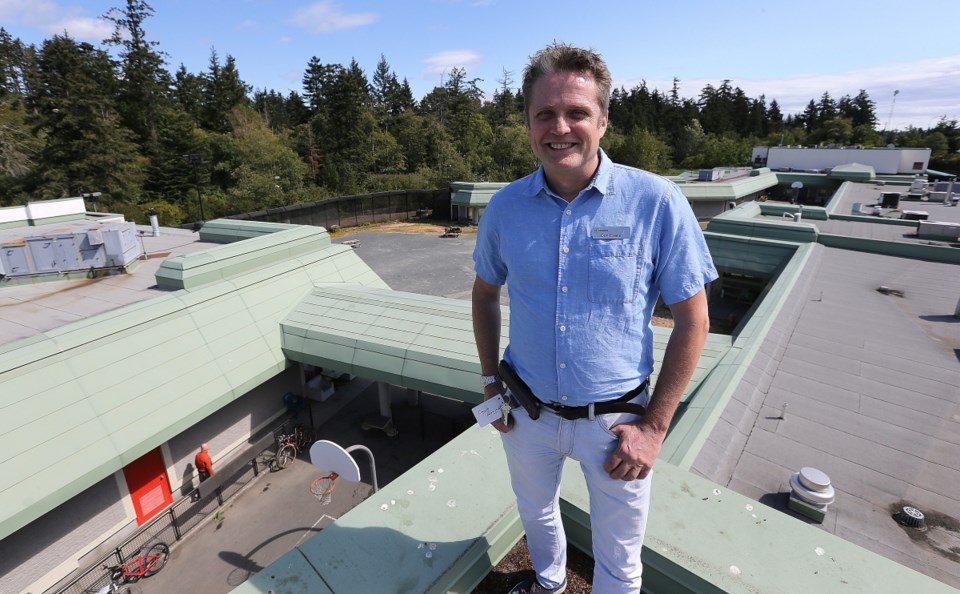Tent cities are a viable first step toward more permanent housing, says Our Place executive director Don Evans.
“I look at it as an opportunity for us. People are coming out of the shadows. They’re coming out of the bushes. They’re coming out of the parks. They’re in a place where we can actually start to address their needs,” he told a housing forum involving local mayoral candidates.
“I understand that it’s not the safest form of shelter and that it’s not any safer for the individuals in there than it is for some of our neighbourhoods. But it’s safer than what they have,” he said.
If every municipality in the capital region made a single parcel of land available for 40 to 50 units of modular housing, it would virtually end homelessness in the region, Evans said, challenging the mayoral candidates to, if elected, do just that.
“This is a crisis. This is something that needs to be addressed collectively and immediately,” he said.
The provincial government is offering 2,000 units of modular housing across B.C., but just 21 units are in Greater Victoria because only Victoria stepped up with a site, he noted. “On a percentage basis, we should have got a couple of hundred, but there wasn’t any land that was put up by the municipalities and that’s what was needed.”
The forum was sponsored by Our Place.
Victoria Mayor Lisa Helps pledged to find a site and challenged other mayoral candidates to do the same.
“I’m going to say yes and I’m going to challenge all of my colleagues from across the region to begin a coalition of mayors for modular housing,” Helps said to applause from the packed house at First Metropolitan United Church.
Challenger Stephen Hammond said he, too, would honour the pledge if elected.
Victoria mayoral candidate Rob Duncan said there are many available sites.
Evans agreed, saying everything from school grounds to church parking lots could be used for modular housing.
But others said finding land for modular housing might not be that easy.
“I don’t think municipalities have a lot of spare land. I know we don’t in View Royal,” said View Royal Mayor David Screech. “We have parks and I certainly wouldn’t be re-elected if I was to give up parks.”
Screech, who has been acclaimed, said local governments have done more in the last four years on the housing issue than has been done before. Screech cited the Capital Regional District’s commitment of $30 million for social housing, which was then matched by the federal and provincial governments.
“So we have seen the start of a huge investment after decades of neglect from senior governments,” he said, noting that the CRD owns the Capital Region Housing Corp., which is the largest provider of affordable housing in Greater Victoria.
Pointing to the lack of shelters in the West Shore, he agreed more can be done.
Evans said if municipalities don’t have a piece of land available for modular housing, they should buy one.
“This is an investment. You have tax bases, go and buy a piece of land,” he told the candidates. “When people are housed out of those facilities, you can sell that piece of land and get your money back.”
The more that local governments can do to help with the issue of affordability, the better, said Catherine Holt, executive director of the Greater Victoria Chamber of Commerce.
“The average worker and all of the people that you’re hearing from tonight cannot afford a house. The average wage, the average citizen cannot afford the average house in Victoria any more,” Holt said.
“There’s a wide array of non-market solutions. There are many organizations working on that. There’s a lot of government money starting to go into that so the more municipalities can step up and be part of those solutions, I think, that’s going to be the only thing that gets us where we need to go,” she said.



